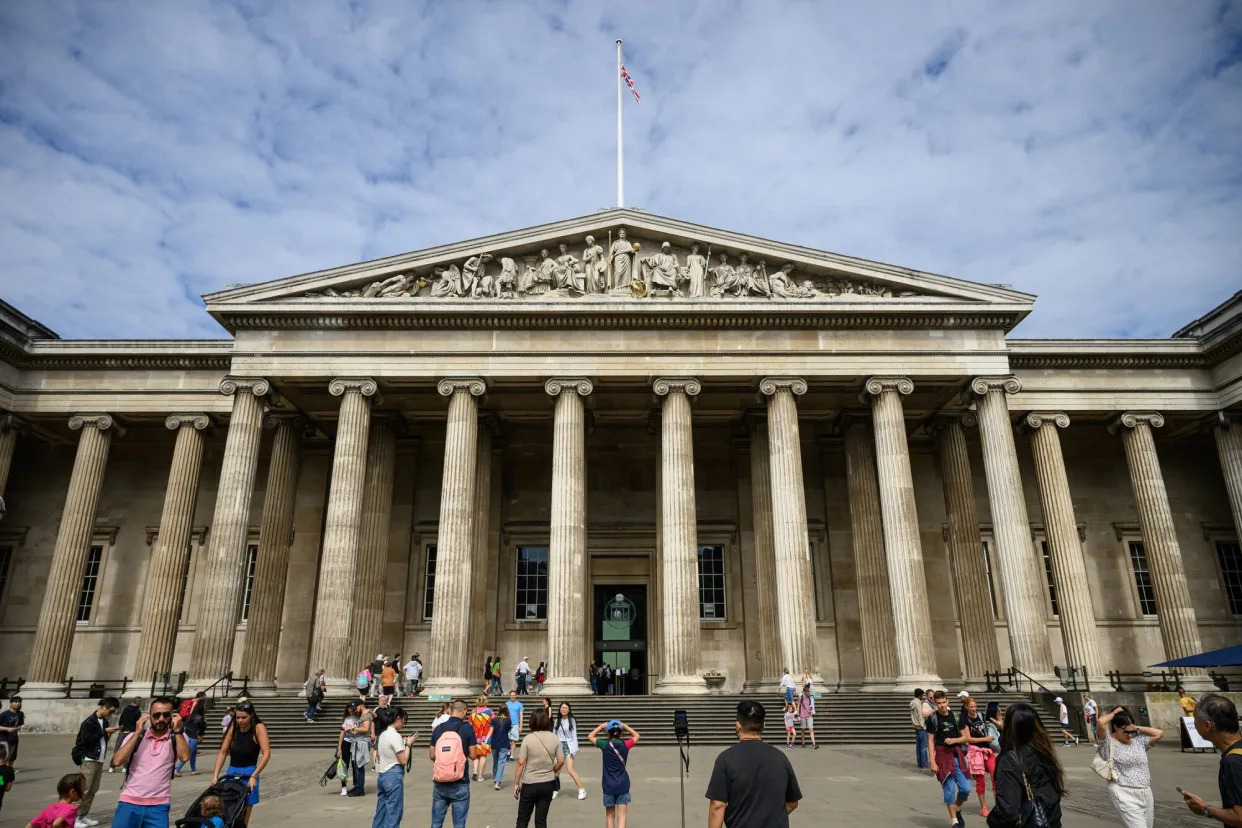Bloomberg News
Mon, August 28, 2023

(Bloomberg) -- Chinese state media has urged the UK’s most famous museum to return items “stolen” in past centuries, potentially widening a rift between the Asian nation and the West.
“We formally request the British Museum to return all Chinese cultural relics acquired through improper channels to China free of charge, and to refrain from adopting a resistant, protracted and perfunctory attitude,” the Global Times said in an editorial Monday.
The newspaper said the museum had 23,000 Chinese items, and gave as examples a painting from the Tang dynasty and bronze vessels dating to the dawn of the Asian nation’s civilization.
“Most Chinese collections were certainly looted or stolen by Britain when it created and later took advantage of China’s crisis, or even directly robbed China,” the nationalist-leaning newspaper said, referring to 19th century upheaval in the Asian nation. The Global Times added that it backed other countries who sought the return of artifacts.
See: UK’s Cleverly Prepares to Visit China in Last Week of August
The editorial comes just before an expected visit by UK Foreign Secretary James Cleverly to Beijing in a bid to repair ties hurt by the Communist Party’s crackdown on Hong Kong’s pro-democracy opposition and other issues.
It is unclear whether the Chinese artifacts would be raised at Cleverly’s talks with Chinese officials, though a British law enacted in 1963 bars the institution from repatriating objects.
The British Museum is holding a summer exhibit called China’s Hidden Century, which covers a period of the Qing dynasty from 1796 to 1912. One of the items on display is the original Treaty of Nanjing, which ended the First Opium War and ceded Hong Kong to Britain.
The ruling Communist Party frequently references that period as an example of foreign powers “humiliating” China. The party tries to gain legitimacy in the eyes of its people now by pledging that it will never let a repeat occur on its watch and will counter any effort by the West, especially the US, to undercut China’s development.
The Global Times editorial was the top trending item on China’s Weibo social media platform on Monday, and opinion was divided on the newspaper’s stance. Some internet users accused it of trying to distract the public from the nation’s flagging economy.
“The public know that the economy is on a downward trend and you are working hard to evoke a sense of cohesion for our nation,” wrote one user named Niu Mingyu whose post got 10,000 likes. “But populism is not a good thing.”
Another person suggested that the public was getting fatigued by another conflict with a foreign nation following China’s vehement denunciation of Japan for releasing treated wastewater from the Fukushima nuclear power plant into the ocean.
“The timing is quite awkward,” wrote Wang Weichen. “The public was focused on condemning Japan, and now another front is being opened on the West. Netizens are feeling very tired.”
Bloomberg Businessweek
No comments:
Post a Comment